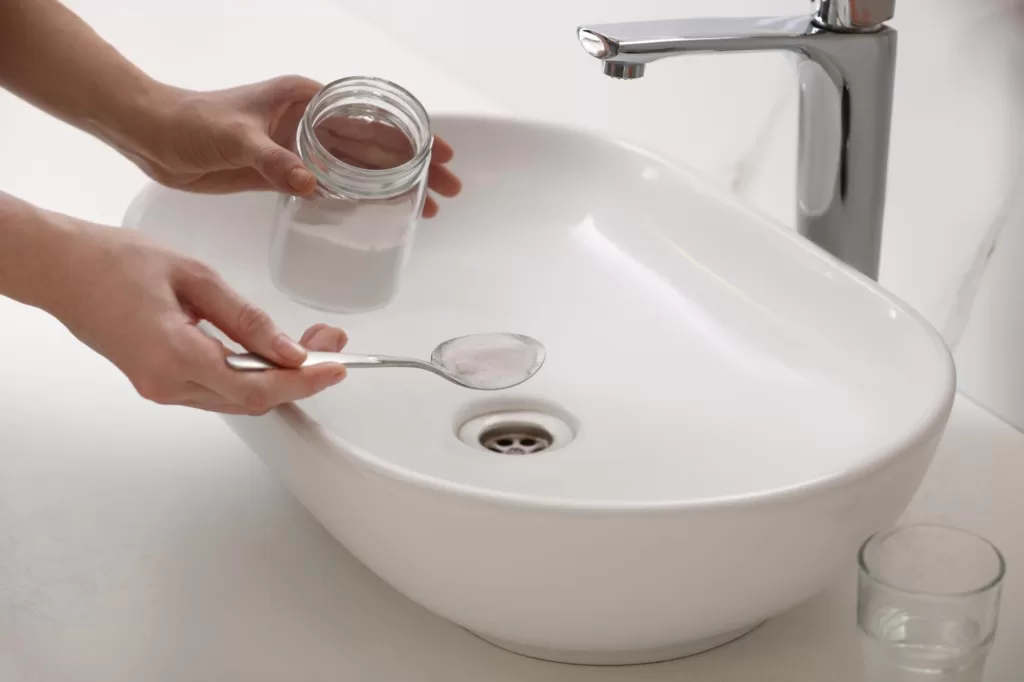Do you live in an area where the water is hard water? Are you experiencing low water flow or pressure in your home? Mineral buildup in the drains often happens due to calcium, magnesium, or potassium. High concentrations of these minerals in the water make it “hard.”
Although it is safe for consumption, the minerals harm fixtures over time; therefore, it is not an easy problem to deal with.

If you are unsure if the water you use is hard water, check for the presence of limescale or white stains on your sink, dishes, toilet, dishwasher, or kettle. If left unresolved, calcium or mineral buildup in the drains can lead to blockages or corrosion.
Mineral buildup in pipes results from the minerals in hard water solidifying when exposed to heat or evaporation.
These minerals, like calcium and magnesium, create a stubborn scale that gradually accumulates within your plumbing system, household appliances, and fixtures such as showerheads. Over time, this buildup can lead to various issues, potentially causing appliance failures and clogging pipes.
Even though certain materials like copper, PEX, and PVC offer resistance to corrosion and buildup caused by hard water, they aren’t entirely immune.
Despite their resilience, persistent mineral deposits can still block or obstruct them. This buildup might not cause immediate problems, but it can accumulate and impact the efficiency and lifespan of your appliances over time.
Read Also :
You can choose to solve this issue temporarily or permanently depending on the intensity of the case. Although we highly recommend using professionals to deal with this problem, here are a few temporary methods you can use to break up calcium buildups.
Preventing calcium buildup is indeed a proactive approach to maintaining your plumbing system. Rather than dealing with clogged pipes and drains after the fact, investing in preventive measures can save you time, money, and hassle.
Here are two effective preventive measures:
1) Water Softening System: Installing a water softener is a highly effective way to prevent calcium buildup. These systems work by removing or altering the minerals responsible for scale formation, such as calcium and magnesium. Softened water reduces the likelihood of mineral accumulation, preserving the integrity of your plumbing system and appliances.
2) PEX Piping: Consider replacing your existing piping system with PEX (cross-linked polyethylene) pipes. PEX is known for its resistance to corrosion and mineral buildup, making it less susceptible to the effects of hard water. Using PEX piping, you create a more durable and long-lasting plumbing infrastructure better equipped to withstand the challenges of mineral deposits.
We would like our drains to be free from any form of clogs. If synthetic dissolvent is not effective, install a filtration system or call professional plumbers to remove the blockage for you. By calling your plumber, these blockages can often be fixed in no time.
Regular maintenance and cleaning can help mitigate the effects of mineral buildup, extending the life of your appliances and ensuring the smooth flow of water throughout your plumbing system.